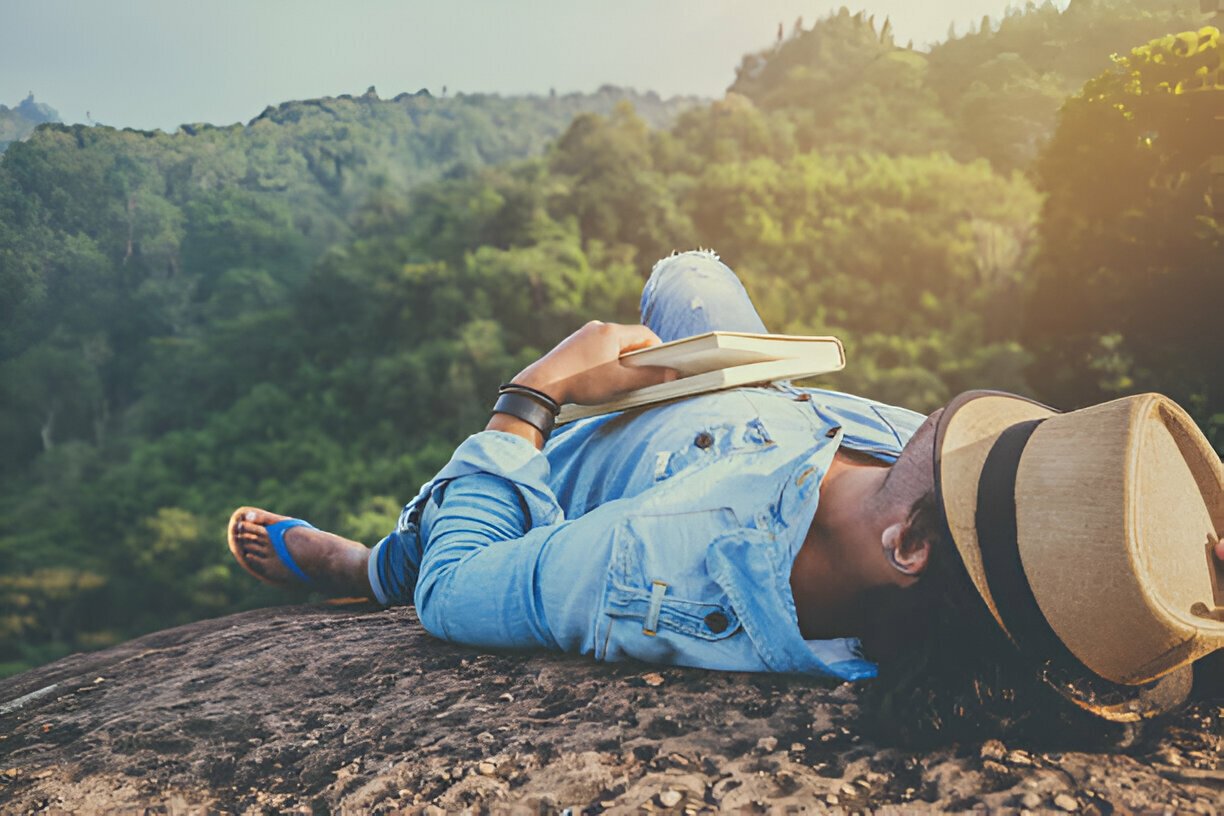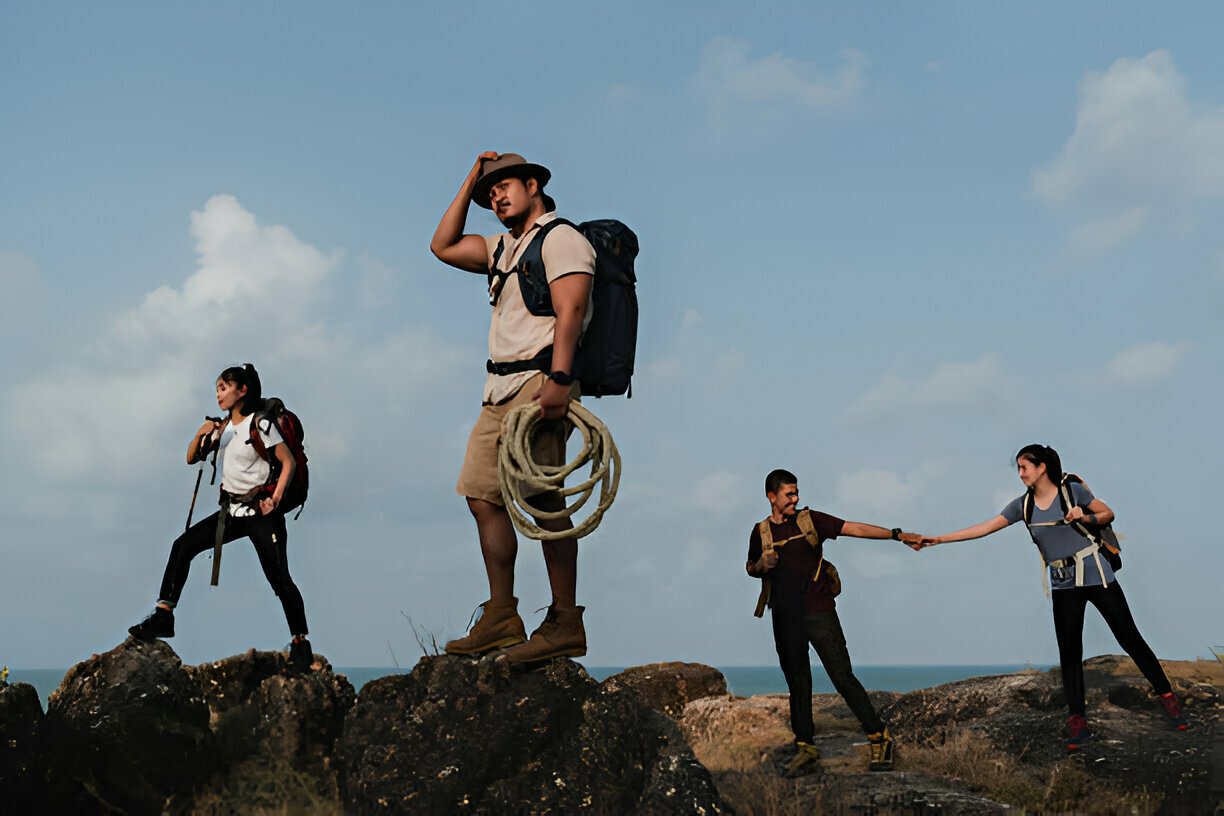The Importance of Travel in Life: Personal Growth and Learning from Different Cultures
Traveling is not just about visiting new places or taking vacations; it holds a deeper significance that can shape who we are and how we view the world. The experiences gained from exploring new destinations can have a lasting impact on personal growth, learning, and well-being. Whether it’s through immersing oneself in different cultures, discovering new landscapes, or seeking adventure, travel offers numerous benefits that contribute to a more fulfilled and meaningful life.
In this article, we’ll delve into the importance of travel in life, how it fosters personal growth, and the benefits it brings to mental health and relaxation. Let’s explore how stepping outside our comfort zones can lead to profound changes.
Personal Growth and Learning from Different Cultures
One of the most significant aspects of traveling is the opportunity it provides for personal growth. When we travel, we step outside the familiar and expose ourselves to new experiences, people, and perspectives. This exposure can help us become more open-minded and adaptable, as we learn to navigate unfamiliar environments.
-
Cultural Understanding: Traveling to different countries or even regions within your own country exposes you to diverse cultures, traditions, and ways of life. Understanding different cultures helps break down stereotypes and prejudices, fostering empathy and tolerance. You learn that people may have different customs, beliefs, and values, but that doesn’t make them any less human or important. This cultural exchange broadens your worldview and encourages respect for diversity.
-
Learning New Languages: Traveling often pushes you to learn a few words or phrases in a new language. This process challenges the brain and improves cognitive abilities, enhancing communication skills and boosting self-confidence. Even if you don’t become fluent, making an effort to communicate in a local language is a valuable and rewarding experience.
-
Building Resilience and Confidence: Traveling, especially solo travel, presents a range of challenges that require problem-solving and adaptability. Whether it’s navigating public transportation in a foreign city, handling a missed flight, or figuring out how to communicate in an unfamiliar place, travel tests your ability to remain calm and think critically. Overcoming these challenges builds resilience, confidence, and a sense of accomplishment.
-
Self-Discovery: Traveling often leads to self-reflection and introspection. Being in a new environment provides the space to think more deeply about your life, values, and priorities. Traveling alone, in particular, gives you the opportunity to reconnect with yourself, discover new interests, and redefine who you are away from the distractions of daily life.
Benefits of Exploring New Places: Mental Health, Relaxation, and Adventure

Travel not only nurtures personal growth but also has numerous benefits for our mental health and well-being. Exploring new places can offer relaxation, excitement, and a break from the stresses of everyday life.
-
Mental Health and Stress Relief: Travel is an excellent way to break away from the pressures and demands of daily life. Whether it’s taking a short weekend trip or a longer vacation, changing your environment can significantly reduce stress and promote relaxation. Studies have shown that travel can lower stress levels, reduce anxiety, and improve mood. Being away from work, family obligations, and the usual routine provides much-needed mental clarity.
Immersing yourself in nature, whether it’s hiking in the mountains, walking along the beach, or exploring forests, also has calming effects on the mind. Nature is known for its therapeutic benefits, helping to lower blood pressure, improve focus, and alleviate feelings of depression.
-
Relaxation and Rejuvenation: Travel gives you the chance to slow down and relax. While working hard and meeting deadlines is important, taking time to unwind is crucial for long-term health and happiness. When you travel, you often disconnect from technology and work-related responsibilities, allowing you to recharge both mentally and physically.
Additionally, exposure to new environments can inspire creative thinking and spark new ideas. The freedom of being away from your regular environment can help clear mental fog and bring about fresh perspectives on old problems. Whether it’s a trip to the countryside or a tropical destination, traveling offers the perfect setting to recharge and rejuvenate.
-
Adventure and Exploration: Traveling offers endless opportunities for adventure, whether you’re exploring bustling cities, hiking through mountain ranges, or diving into underwater ecosystems. Every place has its own unique experiences, from adrenaline-pumping activities like bungee jumping or zip-lining to quieter moments of exploration, such as visiting historical sites or tasting new foods.
Adventure travel encourages you to step out of your comfort zone, take risks, and create unforgettable memories. The excitement of discovering something new ignites the sense of curiosity and wonder within us, allowing us to live more fully in the present moment. For many, this sense of adventure is what makes travel so enjoyable and fulfilling.
How to Make the Most of Your Travels
While the benefits of travel are clear, it’s essential to approach it with an open heart and mind to fully experience its rewards. Here are some tips for making the most of your travel experiences:
1. Embrace the Local Culture
One of the best ways to learn from a new place is by immersing yourself in its culture. Take the time to interact with locals, try traditional foods, and participate in local customs or festivals. Whether you’re visiting a remote village or a bustling city, learning about the way people live and their unique practices will broaden your understanding of the world.
2. Keep an Open Mind
Traveling often challenges our preconceived notions and exposes us to new perspectives. Approach each trip with an open mind, free from judgment. Be willing to adapt to different ways of doing things, and be respectful of the cultures and environments you encounter. This mindset allows you to learn and grow from each experience, no matter how small.
3. Travel Solo for Personal Reflection
Solo travel can be an incredibly rewarding experience. Without the distraction of companions, you have the freedom to reflect on your life and goals. It also pushes you to navigate situations on your own, which builds confidence and independence. Traveling alone provides the perfect opportunity for self-discovery and reconnecting with yourself.
4. Make Memories, Not Just Photos
While it’s tempting to capture every moment with a camera, don’t forget to fully experience the places you visit. Focus on creating memories through meaningful interactions, unique experiences, and authentic moments. The photos you take will help remind you of your journey, but the memories you create will last forever.
5. Step Outside Your Comfort Zone
Travel offers the perfect opportunity to step outside your comfort zone. Whether it’s trying a new activity, navigating an unfamiliar city, or engaging in a new cultural practice, pushing yourself to try something new fosters growth and confidence. Embrace discomfort, as it often leads to the most rewarding experiences.
Travel as a Gateway to a Healthier Lifestyle

In addition to its mental and emotional benefits, travel can contribute to a healthier lifestyle. Engaging in physical activities while traveling, such as walking, hiking, or exploring new places on foot, increases physical activity levels, which is essential for overall well-being. Many people find that traveling helps them become more active, particularly when exploring outdoor destinations or engaging in adventure sports.
Furthermore, traveling allows you to break free from your usual routine, which often includes unhealthy habits like working long hours, skipping meals, or neglecting exercise. While away, you’re more likely to engage in restorative activities like sleeping longer, eating different foods, and spending time outdoors, all of which can improve your physical health.
The Long-Term Impact of Travel
The long-term effects of travel can be transformative. People who travel regularly often report higher levels of happiness, increased creativity, and a more balanced life. The lessons learned from interacting with diverse cultures and overcoming travel-related challenges contribute to a greater sense of resilience and adaptability. Moreover, traveling helps foster a lifelong love of learning, encouraging curiosity and openness to new experiences.
Travel also leaves lasting memories that shape who you are. Whether it’s the thrill of an adventure, the beauty of a new landscape, or the joy of meeting new people, these experiences remain with you and influence the way you view the world and your place in it. The more you travel, the more you realize that the world is vast, full of diversity, and connected in ways that are often unseen but deeply felt.
Travel as a Source of Inspiration and Creativity
One of the more subtle yet profound benefits of travel is the boost it provides to creativity. Experiencing new places, cultures, and landscapes can spark inspiration that may not come from your day-to-day life. Travel stimulates different parts of the brain and encourages creative thinking by introducing new ideas, art, and architecture.
-
New Experiences Ignite Creativity: Exposure to new environments, unfamiliar designs, and different forms of art and culture often triggers the imagination. Whether it’s exploring ancient ruins, attending a local art exhibit, or even trying out new cuisine, these novel experiences challenge the mind to think in new ways. This can lead to fresh ideas and perspectives that can be applied to both personal and professional life.
-
Enhances Problem-Solving Abilities: Traveling often requires thinking on your feet, whether it’s navigating through a foreign city or solving language barriers. This form of problem-solving, under new and unfamiliar circumstances, sharpens your brain’s ability to think critically and creatively. The skills developed while traveling often translate back into your work and daily life, making you more adaptable and resourceful.
-
Engagement with Art and Nature: Traveling to various destinations exposes you to a wide variety of artistic expressions and natural wonders. This engagement can inspire not only your personal sense of creativity but can also offer fresh perspectives for your career, especially if you are in a creative industry such as design, writing, photography, or music. A simple walk in a new environment or observing different art styles can stimulate new ways of thinking.
Travel as a Way to Strengthen Relationships

While traveling is often seen as an individual or solo activity, it can also play a vital role in strengthening relationships, whether with friends, family, or romantic partners. Traveling together can create shared experiences and lasting memories, bringing people closer.
-
Bonding with Loved Ones: Going on a trip with family or friends provides ample opportunities for bonding. Shared travel experiences—whether it’s tackling a challenging hike, navigating a new city, or simply relaxing together—create lasting connections. Traveling together often helps people communicate better, solve problems together, and develop a deeper understanding of one another.
-
Improving Communication and Patience: Traveling with others can also improve communication skills. When faced with the stresses of travel, such as flight delays, language barriers, or logistical issues, individuals must work together, compromise, and be patient. These challenges often strengthen relationships, helping individuals appreciate each other’s unique qualities.
-
Creating Shared Memories: The shared memories of a trip often become cherished stories that people reflect on for years to come. Whether it’s reminiscing about an unforgettable sunset or laughing over a funny incident, these memories create emotional ties that can deepen relationships and provide a foundation of positive experiences.
Sustainable Travel: Giving Back to the Places You Visit
As we travel more, there’s an increasing focus on sustainable tourism. Traveling responsibly not only allows us to experience the beauty of our world but also helps preserve it for future generations. Many travelers are now focusing on eco-friendly practices, from reducing plastic use to supporting local businesses and conserving natural resources.
-
Supporting Local Economies: Sustainable travel emphasizes supporting local businesses, artisans, and communities. By staying in locally-owned accommodations, eating at local restaurants, and buying goods from local artisans, you help boost the economy of the area you are visiting and contribute to its sustainable development.
-
Minimizing Environmental Impact: As travelers become more environmentally conscious, many are adopting sustainable practices such as reducing carbon footprints, using public transportation, and staying in eco-friendly hotels. Being mindful of the environment ensures that tourism does not negatively impact the natural beauty or resources of the places we visit.
-
Promoting Cultural Preservation: Traveling responsibly also means respecting the cultural traditions and heritage of the places you visit. Learning about and engaging with local communities in a respectful way helps preserve their traditions and supports efforts to protect cultural landmarks and historical sites.
